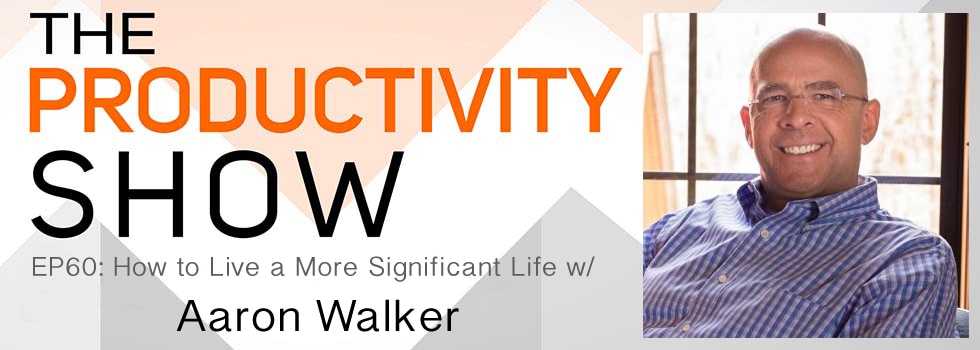
Zack chats with Aaron Walker, successful business owner, business coach, and owner of View From The Top. He talks about how to define a significant life, why relationships are so important, and more.
Cheat Sheet
- The tragic accident that changed his life
- Personal assessment and why it’s important
- Why to block out time to do nothing
- What a life of significance means
- The importance of looking outward, rather than inward
- Why he writes handwritten letters
Links
Book, tool, ritual
Book:
- Essentialism: The Disciplined Pursuit of Less – Greg McKeown
- The Power of Habit – Charles Duhigg
Tool:
Ritual:
- Prayer lists
- Praise and worship music
Connect with Aaron Walker
If you enjoyed this episode, subscribe to the podcast on iTunes, Sticher, Overcast, PocketCast or your favorite podcast player. It’s easy, you’ll get new episodes automatically, and it also helps the show gain exposure. You can also leave a review! Here’s how.
If you enjoyed this episode, follow the podcast on Apple Podcasts, Spotify, Stitcher, Overcast, Pocket Casts or your favorite podcast player. It’s easy, you’ll get new episodes automatically, and it also helps the show. You can also leave a review!
